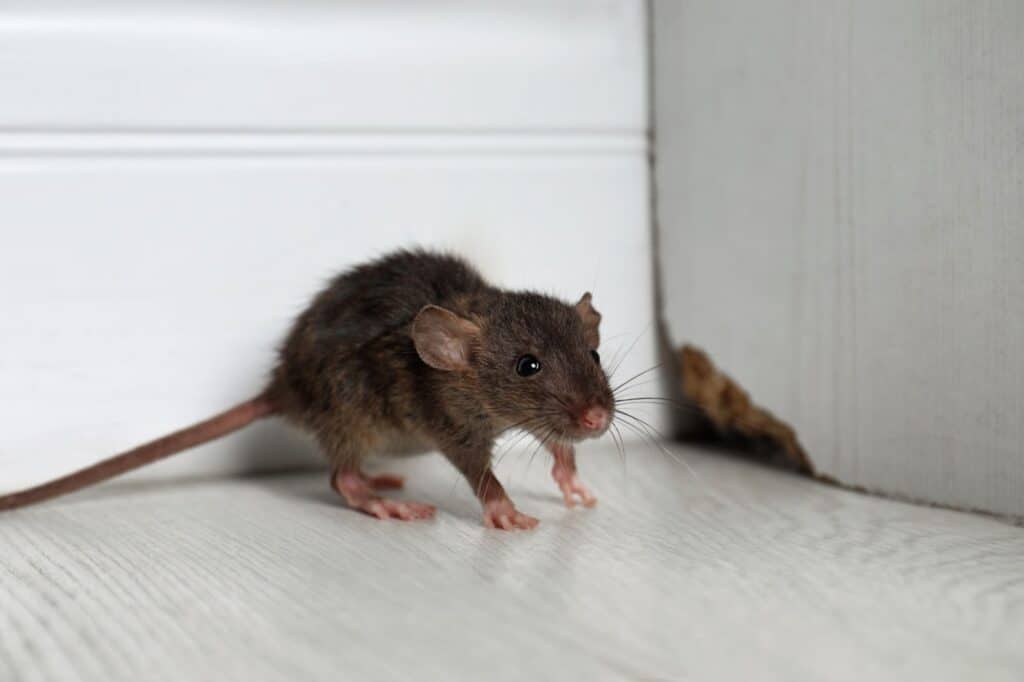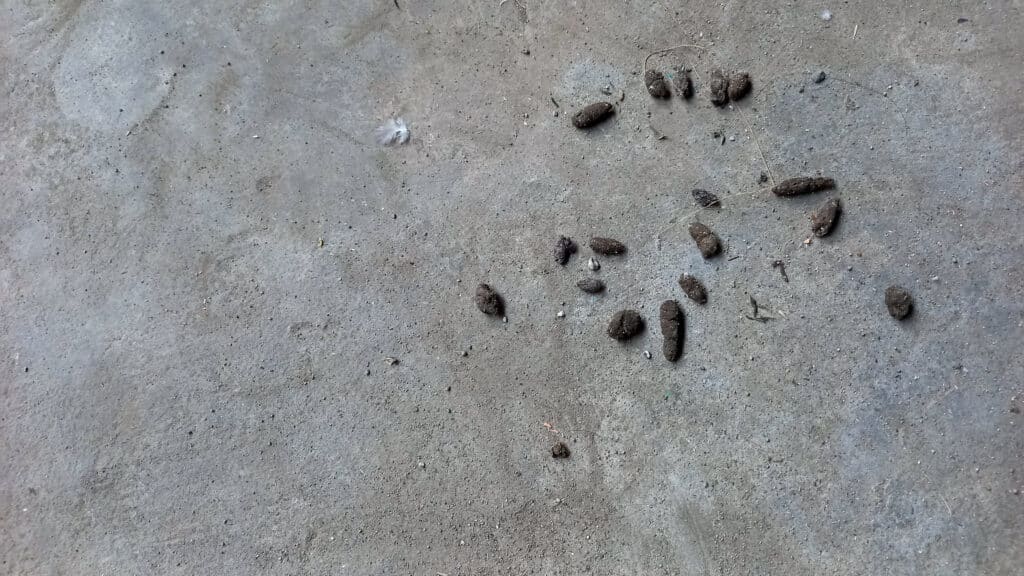Maybe you’ve found droppings in your pantry, or you’ve spotted gnawing within your kitchen cupboards. This begs the question: what kind of critter has infiltrated your home? A mouse? Vole? Rat?
You don’t have to be an animal expert to identify which pest is in your home, or to learn how to protect and rid your home from the most common rodents. Our experts at Bug Control Specialist, northern Colorado’s top pest control specialists, explain everything you need to know about potential rodent stowaways.
What Kind Of Damage Can Rodents Cause?
A rodent infestation brings all kinds of problems into your once-peaceful home. Rodents are known to chew through nearly anything, from insulation to vinyl siding to wood. They can even chew on electrical wires, which could potentially cause a fire within your home.
One of the most serious consequences of live-in rodents is the potential for disease. Rodents spread diseases through their urine, saliva, and droppings. Since they are often near or in your pantry and food, you could catch a serious illness without even realizing how.
What Are The Most Common Rodents That I’ll Find In My Home?
When you catch a glimpse of a rodent scurrying away, it can be difficult to tell what it is. Rats are the easiest rodents to identify, as they are larger and heavier than their mouse counterparts. Rats also have shorter, thick, hairless tails, while mice have long, skinny tails with hair.

Mice are smaller than rats and have large ears (while rats have small ears compared to their body).
Another common rodent to spot in your backyard or garage is a vole. These are commonly called “field mice,” but really they’re a different type of stocky, small rodents.
How Can I Prevent Rodents?
Some of the best ways to deter rodents from making a home are to keep food sealed (in thick plastic containers if possible) and clean up any spills or dirty dishes in a timely manner.
Even pet food, birdseed, and garbage should still be stored in containers with tight lids. If you have a fruit tree or bush, you may also want to pick up any berries or fruit that have fallen on the ground.
What Signs Of A Rodent Infestation Can I Look For?
The most common rodents will produce many signs that they are in your home. These can include finding gnaw marks or droppings as well as loose food in the pantry that may have had its packaging chewed into. You can also look for dark, greasy marks near holes, as this could be from the oil on the rodent’s fur as it squeezed through the opening.

What Should I Do If I Have Rodents?
Early detection is key if you suspect you might have rodents within your home. A simple first step you can take is to set up snap traps (the traditional mousetrap). Bait the trap and put it near any droppings you’ve found.
Traps using poison aren’t recommended within the home, because they can be dangerous for any pets or small children. Additionally, a rodent may ingest the poison and then scurry away and die in a hard-to-reach area, which is a whole new headache.
Let the Specialists Handle Rogue Rodents
Unchecked rodents of any kind can quickly wreak havoc on your everyday life. If you want the problem taken care of quickly and effectively, contact Bug Control Specialists. We’ll not only free your house from any new rodent roommates, but we can also keep them from coming back anytime soon. Contact us today for a custom solution to your rodent problem!
